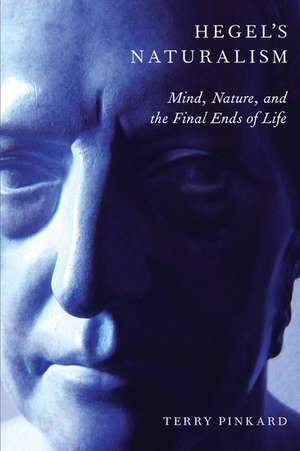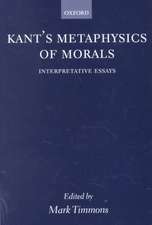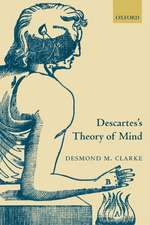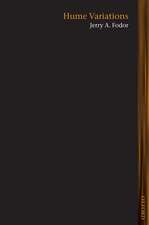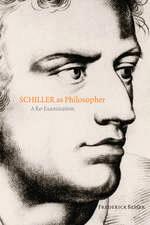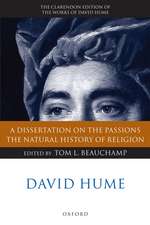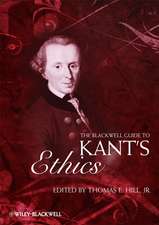Hegel's Naturalism: Mind, Nature, and the Final Ends of Life
Autor Terry Pinkarden Limba Engleză Paperback – 17 oct 2013
| Toate formatele și edițiile | Preț | Express |
|---|---|---|
| Paperback (1) | 307.01 lei 31-37 zile | |
| Oxford University Press – 17 oct 2013 | 307.01 lei 31-37 zile | |
| Hardback (1) | 563.98 lei 31-37 zile | |
| Oxford University Press – 16 feb 2012 | 563.98 lei 31-37 zile |
Preț: 307.01 lei
Nou
Puncte Express: 461
Preț estimativ în valută:
58.77€ • 60.48$ • 49.54£
58.77€ • 60.48$ • 49.54£
Carte tipărită la comandă
Livrare economică 18-24 februarie
Preluare comenzi: 021 569.72.76
Specificații
ISBN-13: 9780199330072
ISBN-10: 0199330077
Pagini: 228
Dimensiuni: 231 x 155 x 18 mm
Greutate: 0.3 kg
Editura: Oxford University Press
Colecția OUP USA
Locul publicării:New York, United States
ISBN-10: 0199330077
Pagini: 228
Dimensiuni: 231 x 155 x 18 mm
Greutate: 0.3 kg
Editura: Oxford University Press
Colecția OUP USA
Locul publicării:New York, United States
Recenzii
original and very clear
In 2003-2004, Terry Pinkard, a leading scholar on Hegel, received the Humboldt prize for lifetime achievement. His current work, Hegels Naturalism: Mind, Nature, and the Final Ends of Life (2012), attempts an overview of Hegels thought under the aegis of Naturalism. It is written in a very clear fashion, with the notes allowing Hegel to speak for himself in lengthy quotations and sending the reader to the wide literature on Hegel.
Pinkard's book develops a powerful, attractive reading of Hegel's conception of spirit. While offering a wealth of insights and novel perspectives on concrete details from different parts of Hegelâs system, it manages at the same time to make emerge a convincing overall picture of spirit as an open-ended, continuously struggling activity aiming at the final end of being at one with itself against all odds.
In 2003-2004, Terry Pinkard, a leading scholar on Hegel, received the Humboldt prize for lifetime achievement. His current work, Hegels Naturalism: Mind, Nature, and the Final Ends of Life (2012), attempts an overview of Hegels thought under the aegis of Naturalism. It is written in a very clear fashion, with the notes allowing Hegel to speak for himself in lengthy quotations and sending the reader to the wide literature on Hegel.
Pinkard's book develops a powerful, attractive reading of Hegel's conception of spirit. While offering a wealth of insights and novel perspectives on concrete details from different parts of Hegelâs system, it manages at the same time to make emerge a convincing overall picture of spirit as an open-ended, continuously struggling activity aiming at the final end of being at one with itself against all odds.
Notă biografică
Terry Pinkard is Professor of Philosophy at Georgetown University; author of German Philosophy 1760-1860: The Legacy of Idealism, Hegel: A Biography and Hegel's Phenomenology: The Sociality of Reason; and editor of Heinrich Heine on the History of Religion and Philosophy in Germany.
